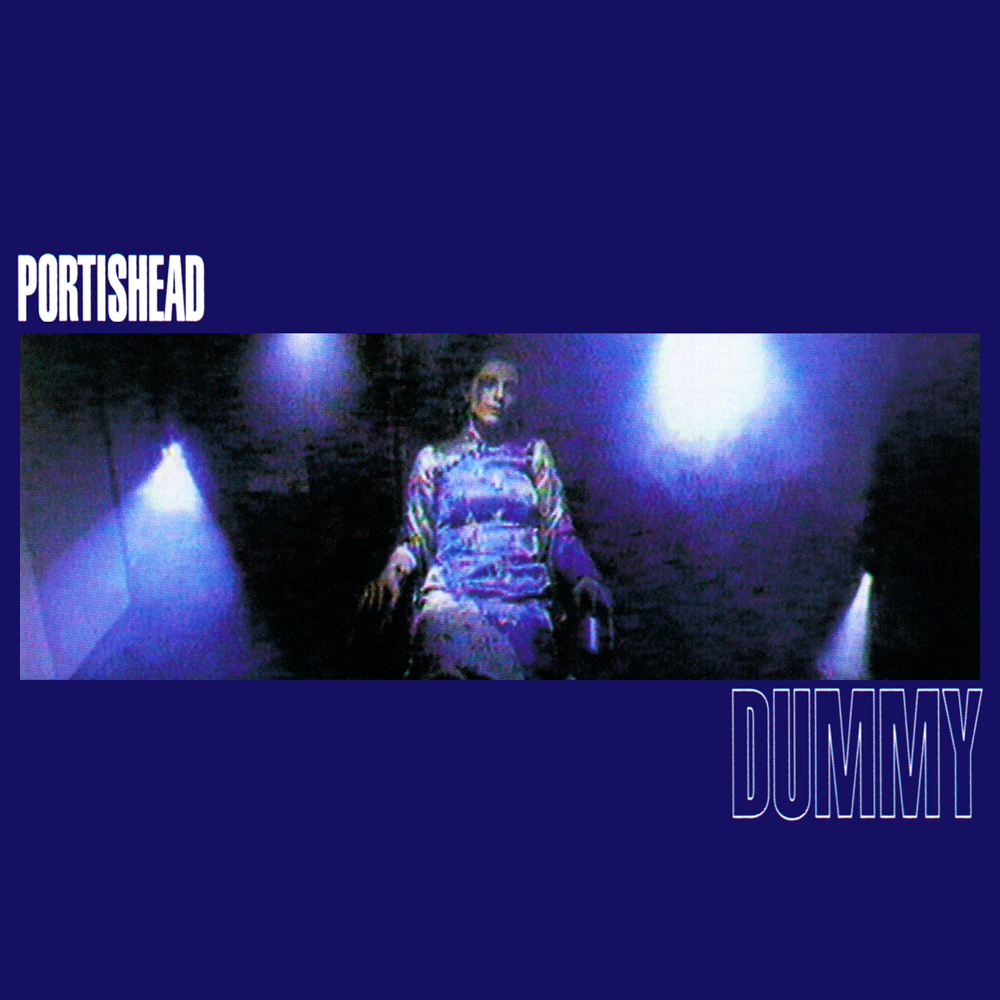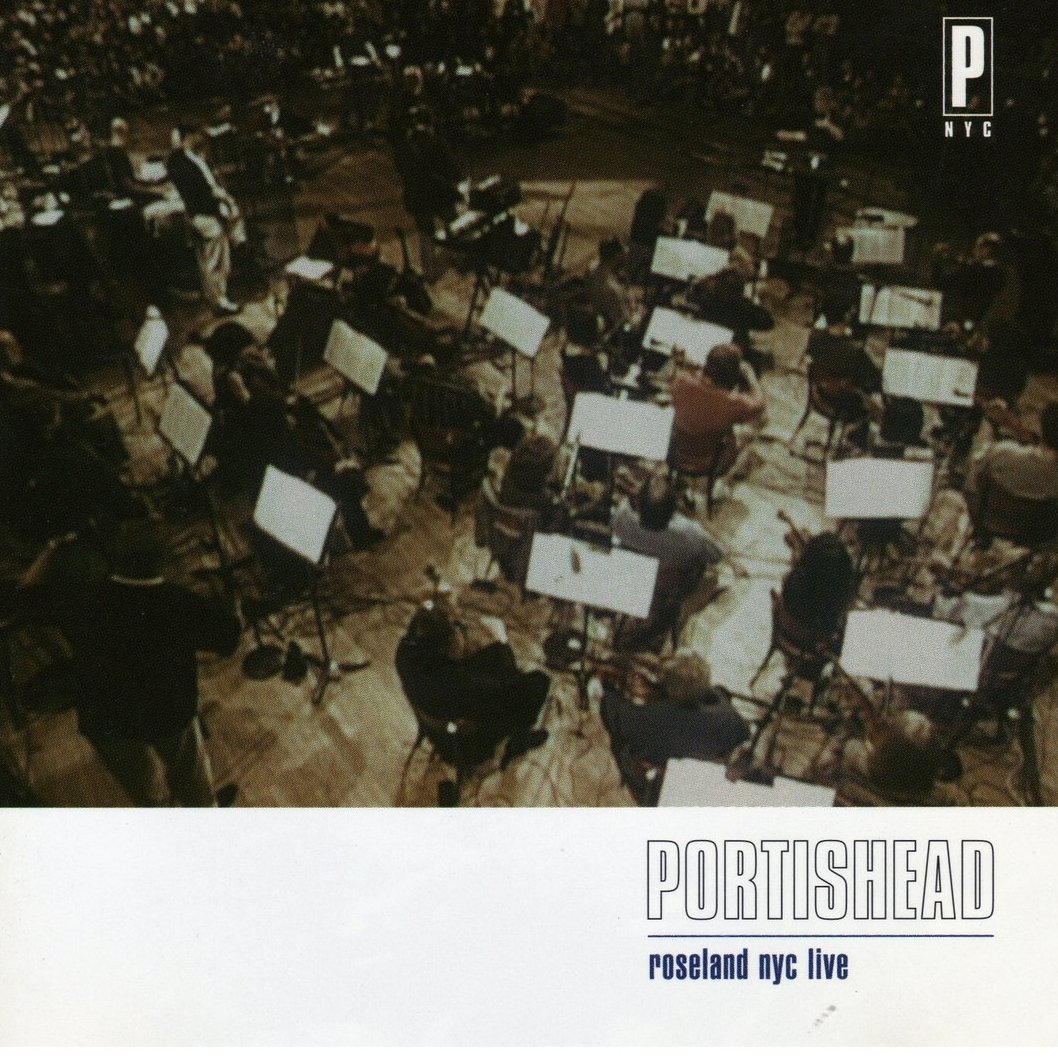Happy 25th Anniversary to Portishead’s eponymous second studio album Portishead, originally released September 16, 1997. (Note: Select sources cite September 29, 1997 as the album’s official release date.)
Though nearly 25 years have now passed, I still vividly—and viscerally—recall the evening of March 28, 1998. That was the night that I experienced the greatest live performance I’ve ever personally witnessed. And I’ve seen a lot of shows in my lifetime. A lot of epic shows. But this was the one. The crème de la crème. The pinnacle. Portishead at the Santa Monica Civic Auditorium.
Following an inspired opening DJ set by their revered colleague Andy Smith (who unveiled his landmark Document mix album just a few months later), the enigmatic trio of Geoff Barrow, Beth Gibbons and Adrian Utley took the stage and proceeded to wallop my mind, body and soul with the most thrilling sound I’d ever heard. It was dark. It was loud. And it was magical.
While my hazy memories of the ephemeral acquaintances that I attended the show with have become even more obscured in the ensuing years, I’ve never forgotten the transformative power of the songs that evening. And though I had indiscriminately embraced the songs of the group’s debut album Dummy (1994) and its self-titled successor Portishead (1997) before seeing them live for the first time, it was the rendering of the latter’s offerings that resonated most profoundly for me that night. And they still do a quarter-century on.
It's impossible to understate Dummy’s far-reaching impact as one of the preeminent musical touchstones of its era, however. When the album surfaced in the summer of 1994, its inventive, genre-fluid convergence of electronic, hip-hop, jazz and soul influences helped to engender a new blueprint sound. The earliest sketches of this emergent aesthetic had been devised three years earlier with the advent of Blue Lines (1991), the inaugural, trailblazing long player by Portishead’s Bristol, England compatriots Massive Attack. But with Dummy, Portishead elevated the groups’ shared musical ethos beyond the confines of their native UK, capturing a loyal international audience including a devout stateside contingent of listeners.
Not surprisingly, critical accolades—like the 1995 Mercury Prize, for one—arrived in abundance, and rightfully so. Superficially classified by critics as “trip-hop,” the pervasive musical movement that Dummy catalyzed also precipitated—for better or for worse—the widespread proliferation of artists that attempted to replicate Portishead’s sound to varying degrees of success.
Imitation may be the sincerest form of flattery, as they say, but Portishead remained focused on advancing their art. For their second album, the trio looked inward to evade creative complacency and, in turn, preserve their singular musical identity, transitioning from the heavily sample-based approach of Dummy to songs predominantly driven by live instrumentation.
“I think it was because the vocabulary that we had as a band, the sound we had, we were suddenly hearing all around us, which made us rather suspicious of our own sound,” Utley confided in a November 1997 Lollipop Magazine interview. “We felt that we had to reinvent ourselves. For at least a year, and possibly even longer, we just weren’t interested in the music that we were making. We also went through rather a major kind of writer’s block, even though we were in the studio every day for the last two years. Finally, we went into a residential studio in the English countryside and decided that we were just going to get some tracks together and get on with it.”
Released in September 1997, Portishead is defined by a darker, denser and arguably more dynamic sound overall relative to its precursor. And while the multi-layered, often cacophonous soundscapes the band constructed here are instantly immersive, the beating (or bleeding) heart of Portishead remains Gibbons’ otherworldly voice and her uncanny penchant for evoking the wide spectrum of human emotion and empathy.
Watch the Official Videos (Playlist):
Three official singles were furnished from the album, beginning with the striking “All Mine,” marked by its Bond-esque cinematic flare, pounding horns and bold percussion, all of which coalesce to elevate a palpable sense of drama (and dread). An eerie tale of obsession and possession unfolds, as the subtly menacing Gibbons demands that the object of her affection “render your heart to me,” at the end of the first verse, then declaring that he is “All mine / You have to be” in the hook before later warning, “Make no mistake / You shan't escape / Tethered and tied / There's nowhere to hide from me.”
A mindful examination of irresolution, second single “Over” commences with plaintive acoustic guitar plucks and Gibbons’ meditative musings, which make way for a thunderous thrash of drums that ignite at the 1:16 mark to stirring effect. Incorporating inventive turntable work and a brief lyrical snippet from The Pharcyde’s 1995 single “She Said,” the disquieting third and final single “Only You” finds the solemn Gibbons exploring deep feelings of disenchantment with the world that are quelled—even if only temporarily—by her companion, the only one “who can tell me apart” and ”turn my wooden heart.”
Although the trio have avoided embracing an overtly political disposition within their songs, a handful of Portishead’s compositions contain allusions to—and thinly veiled condemnations of—the complicated legacy of western capitalism and conservatism, depending on one’s interpretation. The ominous album-opener “Cowboys” is a jarring, clanging dirge that seemingly rebukes the mythology of the western frontier and its accompanying virtues of individualism that were inconspicuously promoted during the overlapping eras of Thatcherism and Reaganism.
“Half Day Closing” is a languid lament that confronts modern hyper-materialism, with a muffled Gibbons sounding as if she’s drowning from the weight of the world in lines like, “Far beyond the shrinking skies / Where money talks and leaves us hypnotized / It don't pave the way / Underneath the fading sun / The silent sum of a businessman / Has left us choking.”
On the hypnotic, pulsating “Elysium,” Gibbons seems to question the rigidity of institutionalized religious doctrine with lines like “No one should fear / What they cannot see / And no one's to blame / It's just hypocrisy.” The hook “But you can't deny how I feel /And you can't decide for me” sounds particularly prescient in light of the recent overturning of Roe v. Wade and the ongoing attack on women’s reproductive rights under the dubious guise of religious fidelity.
Enjoying this article? Click/tap on the album covers to explore more about Portishead:
Additional highlights include “Undenied,” an intimate portrait of vulnerability and desire, its emotional weight and fragility perfectly encapsulated by Gibbons’ voice. The symphonic, slow burn of “Humming” marries haunting orchestral textures with Gibbons’ ruminations of raw yearning to create an atmosphere of impending doom. And the chilling “Seven Months” unfolds as a defiant statement of emotional empowerment in the face of pain, with Gibbons contemplating, “Why should I forgive you / After all that I've seen / Quietly whisper / When my heart wants to scream.”
Amidst the weight of expectation and intensified scrutiny following their universally lauded debut, Portishead didn’t just navigate the noise surrounding them with their second effort—they transcended it. In the two-and-a-half decades that have elapsed since Portishead’s arrival, the group has delivered just one subsequent studio LP (2008’s excellent Third), much to the consternation of their more impatient loyalists. But whether or not Portishead ever record another album together, the brilliance of their repertoire to date and the salience of their musical legacy are eternal.
LISTEN:




